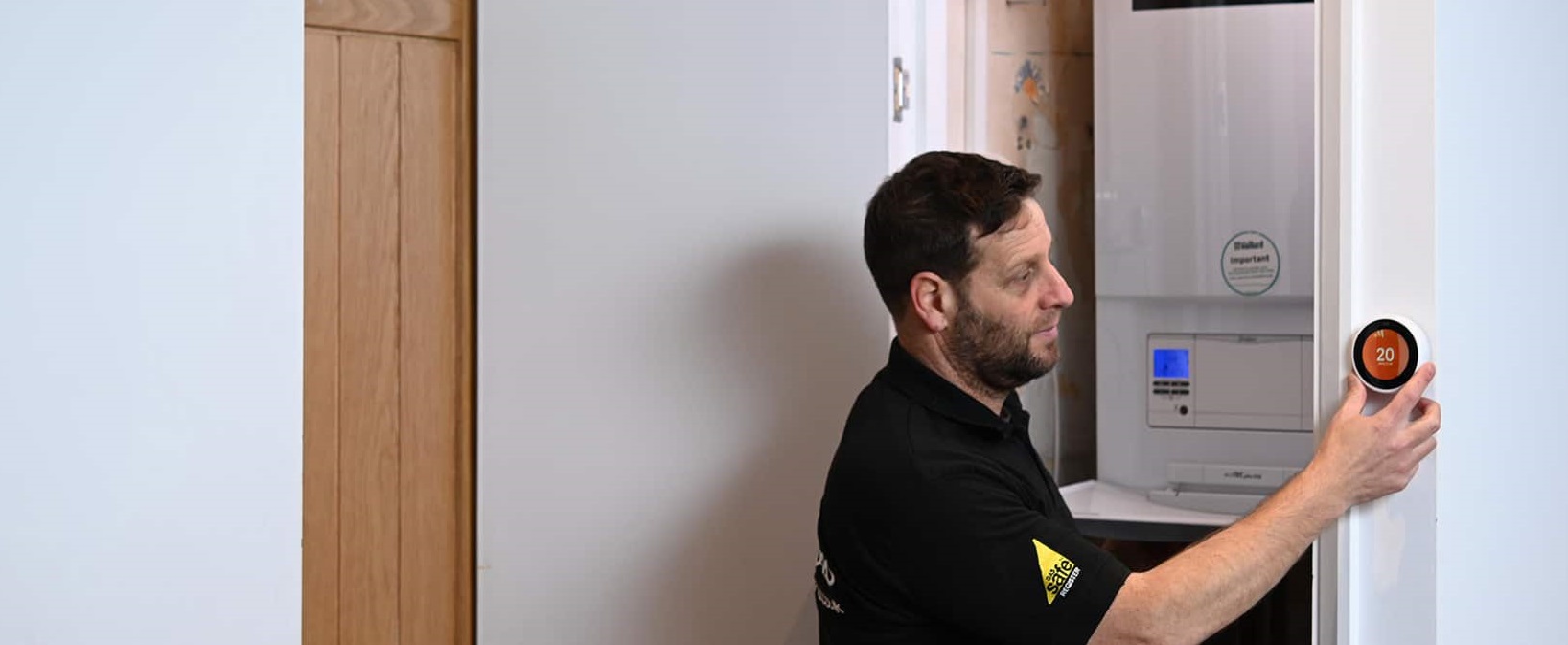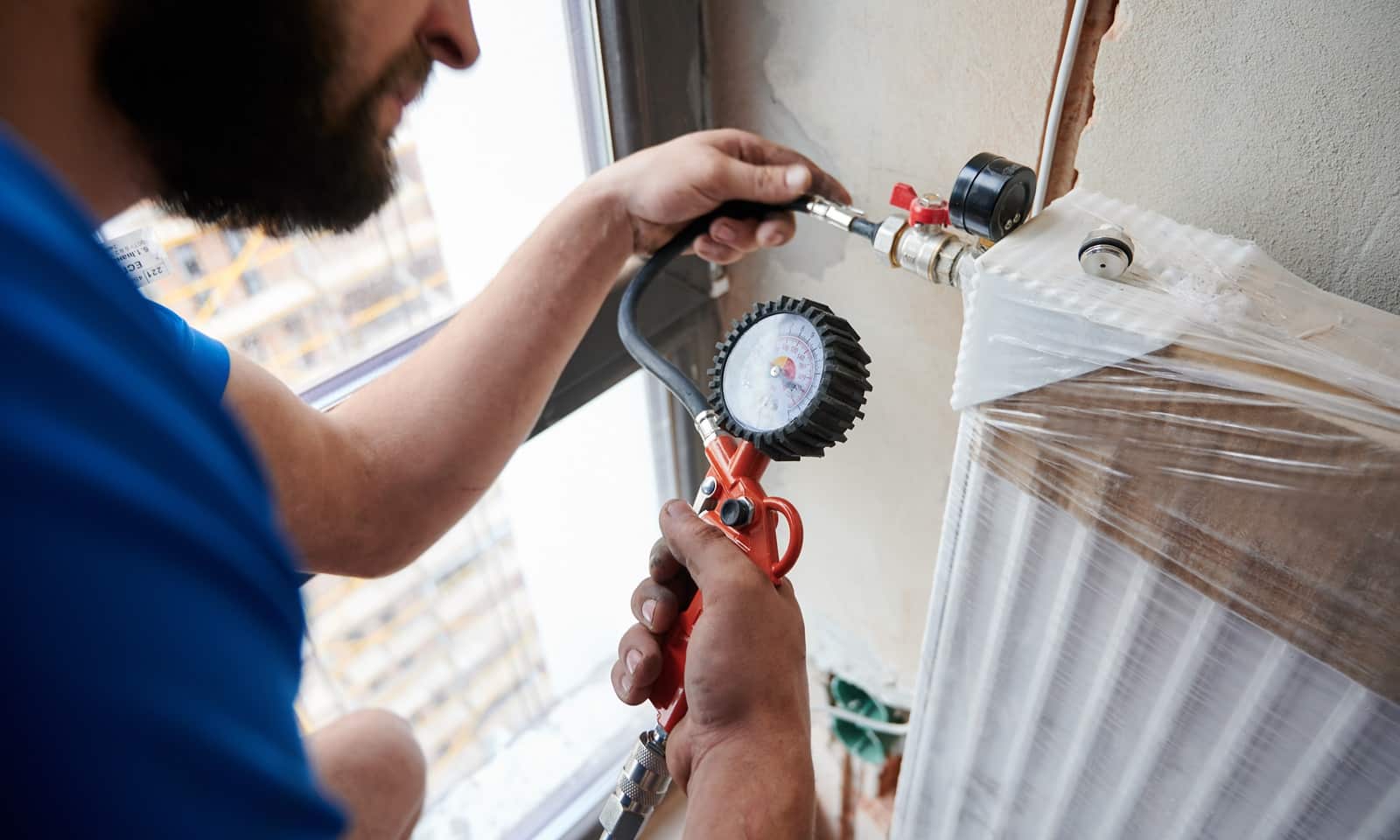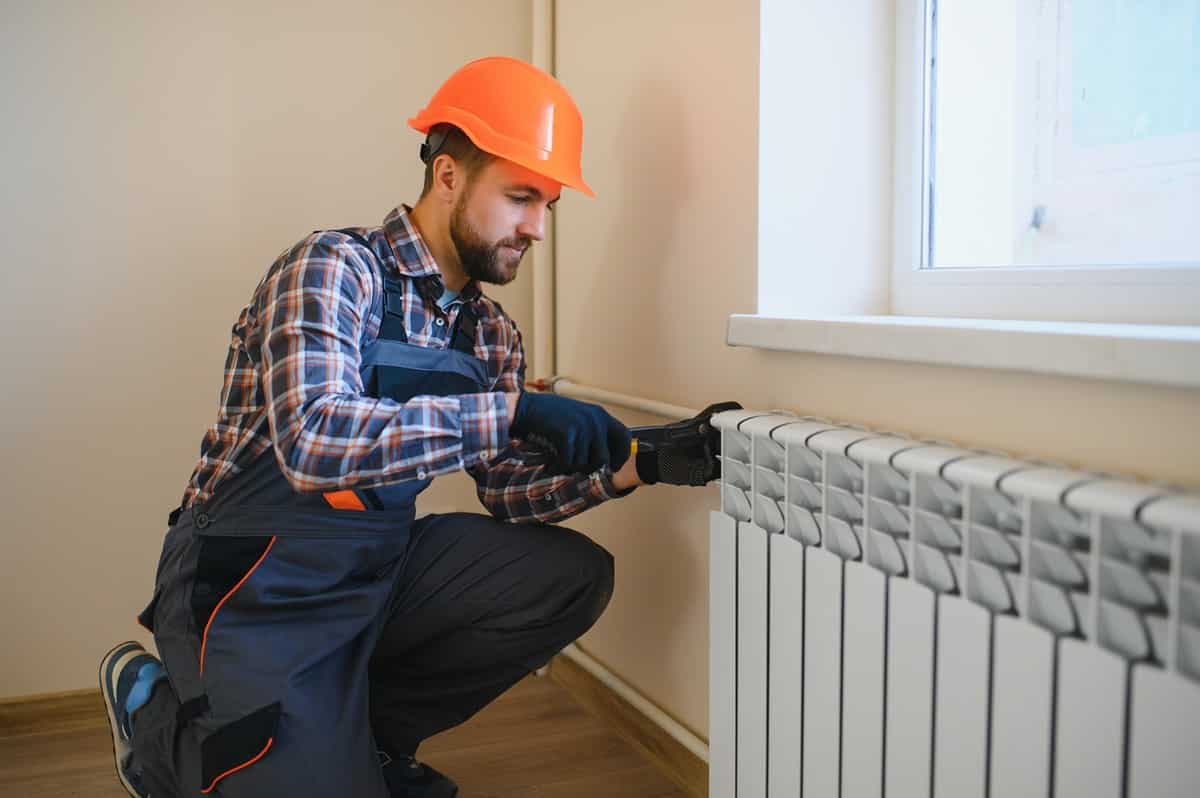 Landlords’ Guide to Gas Safety: Certify and Secure
Landlords’ Guide to Gas Safety: Certify and Secure

Imagine stepping into a world where every landlord holds the key to tenant safety, yet many remain unaware of its power. Yes, we’re talking about **gas safety checks**. Ensuring gas safety isn’t merely another task to tick off; it embodies a crucial safeguard, potentially sparing lives from peril.
Last year alone, countless homes dodged potential disasters thanks to vigilant landlords who prioritized these checks. Yet, for every story of prevention, there’s one of neglect that reminds us all why this isn’t optional—it’s essential.
Gas appliances are like silent sentinels in our homes. When they’re happy, everyone is safe. But when things go awry? That’s when you wish you had acted sooner rather than later.
The stakes? Higher than you might think. We’re not just ensuring the gas hob fires up for tea; we’re preventing carbon monoxide from becoming an uninvited guest in your properties.
Table of Contents:
- The Importance of Gas Safety Checks for Landlords
- Obtaining a Gas Safety Certificate
- The Role of Gas Appliances in Tenant Safety
- Conducting Thorough Gas Safety Inspections
- Preventative Measures and Regular Maintenance
- Recognising Warning Signs of Unsafe Gas Appliances
- The Financial Benefits of Being Gas Safe Certified
- Conclusion
The Importance of Gas Safety Checks for Landlords
Owning property means it’s on you to ensure the people living there are safe, especially when dealing with gas appliances. Ensuring the well-being of your tenants escalates in importance with gas appliances, demanding heightened vigilance.
Regular gas safety checks are a must. They’re not just a legal requirement – they’re a lifeline.
Legal Requirements and Penalties
Navigating the legal landscape is more than ticking boxes; it’s about safeguarding lives. As a landlord, you’re legally obligated to ensure all gas appliances in your rental properties are safe.
That means annual gas safety checks by a Gas Safe registered engineer. And you must provide your tenants with a copy of the gas safety certificate (CP12) within 28 days of the check.
Fail to comply? You could face hefty fines and even imprisonment. If you ignore the rules, not only could you be slapped with a big fine or end up behind bars, but messing around with gas appliances without proper precautions can lead to fatal outcomes.
Benefits Beyond Compliance
But gas safety isn’t just about avoiding penalties. It’s about providing a safe, comfortable living environment for your tenants.
Properties with up-to-date gas safety certificates are more attractive to potential tenants. Demonstrating concern for their health and comfort, these certificates are a testament to your commitment.
Additionally, keeping up with routine upkeep could actually boost your property’s worth in the market. It’s a win-win.
So don’t skimp on gas safety checks. Paying a bit for those safety inspections is nothing compared to the security and tranquility it brings to your renters.
Remember, as a landlord, you have a duty of care. Embrace it. The well-being of your tenants might very well hinge on the level of responsibility you embrace.
Obtaining a Gas Safety Certificate
If you’re renting out property, the law mandates that you make sure it’s secure from gas hazards. Failing to adhere to gas safety regulations might not only hit your wallet hard but could also land you behind bars.
The good news? Getting a gas safety certificate (CP12) is a straightforward process that protects you and your tenants.
Here’s a step-by-step guide on how to obtain one:
- Find a Gas Safe registered engineer in your area.
- Schedule an inspection of all gas appliances and installations.
- The engineer will conduct a thorough safety check and issue a CP12 if everything is in order.
- Keep the certificate on file and provide a copy to your tenants.
It’s that simple. But don’t just pick any engineer.
Choosing the Right Gas Safe Registered Engineer
Not all engineers are created equal. Here are some tips for selecting a competent professional:
- Verify their Gas Safe registration number on the official website.
- Check their qualifications and experience with gas safety inspections.
- Read reviews and ask for references from previous clients.
- Ensure they have adequate insurance coverage.
A qualified Gas Safe registered engineer will conduct a thorough inspection, checking for leaks, proper ventilation, and correct installation of all gas appliances.
Additionally, they’ll scrutinize the gas flow to confirm that every protective mechanism is operating as it should. Once the inspection is complete, they’ll provide you with a detailed report and your official CP12 certificate.
Securing a gas safety certificate transcends mere legal obligations; it’s an essential measure for safeguarding your tenants’ well-being and shielding your financial assets. Don’t cut corners when it comes to gas safety.
The Role of Gas Appliances in Tenant Safety
Ensuring your tenants’ well-being falls squarely on your shoulders as a property owner, particularly when it comes to maintaining all gas devices within the premises at peak performance. And that includes making sure all gas appliances in your rental properties are in tip-top shape.
Why? Because faulty gas appliances can lead to some pretty serious consequences. We’re talking carbon monoxide poisoning, gas leaks, and even explosions. Yikes.
But don’t worry, there are steps you can take to ensure your tenants are safe and sound. First up, regular maintenance. Just like your car needs an oil change, your gas appliances need a little TLC too.
Hire a Gas Safe registered engineer to give your appliances a once-over at least once a year. They’ll check for any potential hazards and make sure everything’s running smoothly.
Next, make sure you’re using the right appliances for the job. That means no using a gas cooker to heat your home (yes, people actually do this.). Stick to appliances that are designed for their specific purpose and you’ll be golden.
Lastly, make sure to enlighten your tenants on the essentials. Let them know how to properly use and maintain their gas appliances. Give them a quick rundown on what to do if they smell gas or suspect a leak. Arming people with the right know-how can significantly elevate safety for all involved.
So there you have it, folks. Being a landlord means bearing the hefty duty of ensuring gas safety is always top-notch. But with a little effort and some regular maintenance, you can rest easy knowing your tenants are protected from any potential gas-related disasters.
Conducting Thorough Gas Safety Inspections
Gas safety inspections are no joke. Ensuring your place is secure and your renters content hinges on the pivotal role of detailed gas safety checks.
A comprehensive gas safety inspection covers all the bases. The engineers check every nook and cranny of your gas appliances, making sure they’re in good working order.
They’ll test for leaks, check for any faulty components, and make sure everything’s running at the correct gas pressure. If something’s not up to snuff, they’ll let you know right away so you can get it fixed or replaced.
Gas safety inspections are especially important for gas hobs. These appliances get a ton of use, so they need a thorough examination to make sure they’re safe and efficient.
The inspection will cover things like:
- Checking for any visible damage or wear and tear
- Testing for gas leaks
- Ensuring the hob is burning at the correct pressure
- Checking that all safety features are working properly
Skipping out on gas safety inspections is a recipe for disaster. Failing to ensure your tenants’ safety and neglecting gas inspections might not only endanger them but also entangle you in severe legal predicaments.
Moreover, consistent check-ups might actually cushion your wallet over time by sidestepping expensive fixes and substitutions. By catching problems early, you can avoid costly repairs and replacements down the line.
So, don’t be a gas safety slacker. Make sure you’re getting those inspections done on the regular. Your tenants (and your wallet) will thank you.
Preventative Measures and Regular Maintenance
By regularly attending to upkeep and safety protocols, you ensure your gas stoves operate at peak performance without any hitches. Don’t wait until something breaks down to take action.
Regular maintenance and inspections not only ensure safety but also improve the efficiency of gas hobs, resulting in cost savings. Conducting regular safety checks on your gas stove can ward off expensive fixes and extend its lifespan, much like routine car maintenance avoids breakdowns.
Think about it this way: you wouldn’t drive your car for years without getting an oil change or tune-up, right? Just like you wouldn’t skip out on regular check-ups for your car, it’s crucial to keep up with the care of your gas gadgets.
Overlooking the need for routine upkeep might culminate in a spectrum of issues, ranging from diminished performance to perilous gas emissions. And trust me, you don’t want to be dealing with a gas leak in your home.
So, what does regular maintenance look like? Here are a few key things to keep in mind:
- Schedule annual gas safety checks with a registered gas safe engineer
- Clean your gas hobs regularly to prevent buildup and ensure proper functioning
- Check for any signs of wear and tear, such as cracks or leaks, and address them immediately
- Follow the manufacturer’s instructions for any specific maintenance requirements
By taking these preventative measures, you can avoid the headache and expense of major repairs down the line. Plus, you’ll have the peace of mind knowing that your gas appliances are running safely and efficiently.
Don’t wait until it’s too late. Make regular maintenance a priority and enjoy the benefits of a well-functioning, safe gas hob in your home.
Recognising Warning Signs of Unsafe Gas Appliances
As a property owner, it falls upon you to ensure the well-being of those living in your buildings by vigilantly maintaining gas fixtures. Thus, you must vigilantly monitor for any indicators suggesting your gas equipment could be hazardous or require maintenance.
Gas hobs are daily usage appliances and can experience wear and tear, leading to damaged components and potential gas leakage. Don’t ignore the signs.
The Smell of Gas
If you smell gas in your property, it’s a major red flag. Natural gas is odourless, but gas companies add a distinctive rotten egg smell to help detect leaks.
If you notice this smell, evacuate the property immediately and call the gas emergency services.
Yellow or Floppy Flames
A healthy gas flame should be crisp and blue. If you notice yellow, orange, or red flames, or flames that appear “floppy,” it’s a sign that your gas appliance isn’t burning properly.
This could be due to a lack of oxygen, a dirty burner, or a problem with the gas line. Improper combustion can lead to the production of carbon monoxide, a deadly odourless gas.
Soot or Scorching
Black soot or scorching around your gas appliance is another warning sign. The presence of black soot or scorch marks might be a red flag, suggesting that your device isn’t burning fuel cleanly and could be silently emitting dangerous levels of carbon monoxide.
Pilot Light Issues
If your gas appliance’s pilot light keeps going out, it could be a sign of a faulty thermocouple, a clogged pilot orifice, or a problem with the gas line.
Don’t attempt to relight the pilot light if it goes out repeatedly. Instead, call a Gas Safe registered engineer to diagnose and fix the problem.
As a landlord, regular gas safety checks are a legal requirement. But beyond compliance, being proactive about gas safety is crucial for the well-being of your tenants and the longevity of your property.
Stay vigilant, know the warning signs, and always err on the side of caution when it comes to gas safety. The lives of those residing in your property might very well hinge on this.
Key Takeaway:
Landlords, stay sharp and proactive about gas safety. Know the warning signs like a rotten egg smell, yellow flames, soot around appliances, or pilot light issues to keep your tenants safe and comply with legal requirements.
The Financial Benefits of Being Gas Safe Certified
Being compliant with gas safety regulations isn’t just about avoiding penalties. It can also lead to significant financial benefits for landlords.
Firstly, having a Gas Safe certification can help you attract more tenants. Renters are increasingly aware of the importance of gas safety, and they’re looking for properties that prioritise their well-being.
Displaying your dedication to gas safety distinguishes you in the bustling rental arena. Emphasizing gas safety not only elevates tenant satisfaction but also paves the way for reduced time on the market and an uptick in rental profits.
Moreover, regular gas safety checks can help you avoid costly repairs down the line. Spotting and resolving small glitches promptly helps avert them from blooming into hefty financial burdens.
According to the Gas Safe Register, regular maintenance can extend the lifespan of your gas appliances by up to 15 years. That’s a significant saving over time.
Additionally, being Gas Safe certified can potentially lower your insurance premiums. Many insurance providers offer discounts to landlords who prioritise gas safety, as it reduces the risk of accidents and liability claims.
In short, investing in gas safety isn’t just a legal requirement. Opting for gas safety measures not only fulfills a legal obligation but also enhances your financial stability and ensures tranquility for you alongside those residing in your property.
So, don’t view gas safety as a burden. See it as a chance to uplift your standing, draw in reliable renters, and solidify your economic prospects in the property game.
Conclusion
So, we’ve danced through the importance of gas safety checks with a spotlight on how they’re not just another box to tick but a critical lifeline. We unpacked the heavy suitcase of legal requirements and tiptoed around the pitfalls of ignoring them. Not only did we discover that being diligent about gas safety could dodge fines and cuddle up to compliance, but it also turns out to be a magnet for tenants who value their safety as much as you do.
We ventured into the realm of obtaining that golden fleece – the Gas Safety Certificate – revealing it’s less about ticking off tasks and more an act of safeguarding dreams. Our journey didn’t stop there; we explored how maintaining those silent sentinels – our gas appliances – ensures they don’t turn into nightmares.
The whispers in our homes, from hobs humming happily in kitchens to boilers bubbling away in basements, all sing songs of safety when tended with care. Recognizing warning signs becomes less detective work and more common sense, transforming potential hazards into minor footnotes in your landlord saga.
And let’s not forget; amidst this ballet between regulations and responsibilities lies a treasure trove hidden beneath layers of legalese: financial benefits glittering for those wise enough to embrace gas safety wholeheartedly.
In essence? The narrative isn’t just about preventing disaster or navigating nebulous norms—it’s sculpting spaces where stories thrive because every breath taken is one assured by vigilance. You’ve got this knowledge now—wield it well!


